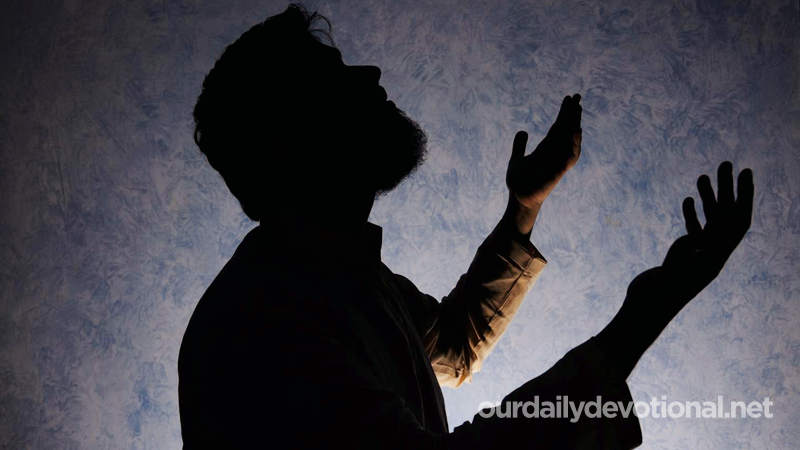The eleventh of the Minor Prophets. It can be divided as follows: I. Introduction and eight visions.
The introduction (Zech. 1:1-6) gives the key to the visions and to the entire book: "Return to me, says the Lord of hosts, and I will return to you, says the Lord of hosts" (Zech. . 1:3).
First vision: the horses (Zech. 1:7-17), fast and tireless. This image shows that God is attentive to events on earth. Despite his silence, he has a jealous love for Jerusalem and a violent anger against the oppressors of his people.
The Temple and the city will be rebuilt and the country will enjoy prosperity. The first vision constitutes the prelude to the seven that follow.
Second vision: the four horns and the four carpenters (Zech. 1:18-21); It means that every horn, that is, every power or every nation that scatters Judah will be destroyed.
Third vision: the man with the measuring line (Zech. 2). Development of the message, confirming the first vision: rebuilding of the city. Jerusalem will become an open city, Jehovah
He himself will be a wall of fire for her and will dwell in the midst of her.
Fourth vision: the high priest Joshua and Satan (Zech. 3). The grace of God rescues the contaminated and imperfect priesthood from the fire of judgment, which is purified and will be perpetuated, if it obeys.
The restoration of the priesthood, in the person of Joshua, announces the messianic reign. The Messiah is called "my servant the Branch." Fifth vision: the golden lampstand and the two olive trees (Zech. 4).
The light of testimony, very weak after the exile, will not go out, because God will provide an inexhaustible oil (symbol of the Spirit).
The two olive trees represent Joshua and Zerubbabel, instruments of God on the political level. Zerubbabel receives the certainty that he will have, from the Spirit, the necessary power to finish the reconstruction of the Temple.
Furthermore, the two olive trees prefigure the two witnesses who will prophesy under the reign of Antichrist (Rev. 11:4).
Sixth vision: the flying scroll (Zech. 5:1-4), symbol of the Word of God that judges and destroys evil. Seventh vision: the woman inside the ephah (Zech. 5:511).
It is the continuation of the sixth vision. Iniquity, personified by the woman, is driven out of the country. The ephah (measurement of capacity) and the mass of lead (measurement of weight) are symbols of that in which it is so easy to harm others.
Eighth vision: the four chariots, which represent the four winds and evoke the invisible power of God (Zech. 6:1-8).
This vision contains the promise that the Lord will fully fulfill the plan outlined in the previous visions. II. Coronation of the high priest (Zech. 6:9-15).
Joshua is a prefiguration of the Branch, the Messiah, who will be king and priest. This coronation announces the future enthronement of Christ, a descendant of David. III.
Questions from a delegation from Bethel about fasting, remembering the destruction of Jerusalem and the Temple (587 BC).
The Jews residing in Bethel, after returning from captivity, did not know if they should continue with the fasts, since the reconstruction of the Temple was being carried out.
Zechariah gives them four answers (Zech. 7-8):
(1) Fasting observed by formalism has no value before God. What matters is obedience to his word (Zech. 7:4-7).
(2) God demands justice and truth. The devastation of the country and the deportation, punishments for disobedience, were not to provoke lamentations, but rather repentance and a spiritual awakening (Zech. 7:8-14).
(3) Yet God loves his people with a great love. He will give them security and holiness (Zech. 8:1-17).
(4) Fasts will then be transformed into festivals (Zech. 8:18-23). IV. Predictions after visions.
(1) Divine punishment will fall on the nations enemies of God's people. A part of Philistia will be incorporated into Israel.
Jerusalem will be miraculously preserved and will see the arrival of its King, the Messiah (Zech. 9). Exhortation to wait on the Lord and to reject idolatry and occultism, sources of deception and misfortune (Zech. 10:1-2).
Continuation of the prophecy. The Lord will give his people victory in battle and will free Judah from all their oppressors. He will gather Judah and Ephraim, he will restore the latter to his country (Zech. 10:312).
But these immense blessings will be deferred. The country will first be devastated (Zech. 11:1-3) because it will have rejected God's commands (Zech. 11:4-17).
The vv. 12 and 13 announce that the divine Shepherd will be sold for 30 shekels of silver. Israel, revealed against God, will have to wait a long time before being able to bring about her unity.
(2) Conflict, and then the definitive triumph of the Kingdom of God. The nations prepare for battle against Jerusalem and against Judah, the center of the cult of Jehovah in the time of Zechariah.
But God will make Jerusalem a “cup that will shake” and a “heavy stone for the people.” His enemies will be stunned. The Lord will be the strength of his people (Zech. 12:1-8).
Jerusalem will be prepared for this definitive triumph (Zech. 12:9-14:5) by its conversion to the Messiah "whom they pierced" (Zech. 12:10-13:6) and by a purifying test in the midst of tribulation ( Zech. 13 7-14:5 a; cf. Dan. 7:25; 12:7).
(3) Liberation and final victory (Zech. 14:5 b - Zech. 14:21). The Lord will come with all his saints and will set foot on the Mount of Olives (cf. Acts 1: 11-12).
This will be a time when darkness and judgments will fall on all nations. In the time set by God the light will shine.
Jehovah's people will prosper, and a remnant of all the nations will go up to Jerusalem each year to worship the Lord, the King. Those who will populate his kingdom will be holy.
Certain exegetes, based on the fact that Mt. 27:9 attributes Zech. 11:13 to Jeremiah, they have wondered if the last chapters of the book are not by another author.
One explanation for this mention of Jeremiah would be that it is a copyist's error introduced very early in Matthew's text.
Another assumption is that in the past Jeremiah appeared in the Hebrew Bible, at the beginning of the later prophets, who appeared in the following order: Jeremiah, Ezekiel, Isaiah, instead of the current order (Isaiah.
Jeremiah, Ezekiel). (See CANON.) This section would sometimes be called the name of his first book, Jeremiah, in the same way that the Psalms are called Psalms of David, and the Proverbs, Proverbs of Solomon, although they were not the only authors. of each respective book.
Many critics claim that Zac. 7-12 would have been written by an anonymous author: (1) According to them, the circumstances would not be those of Zechariah's time.
However, it is not possible to determine any specific era for these chapters considered in isolation.
The critics themselves do not agree with each other; Some consider that it is a fragment from before the exile, while others consider it to be extremely recent.
In fact, this passage corresponds equally well with the times of Zechariah. (2) According to critics, there is a difference in style between these chapters (Zech. 7-12) and the previous section.
This difference, if it is real, can be explained by the variety of topics covered. However, there are also many common features between both sections of the book.
The expression "to come and go" is found in Zech. 7:14 and 9:8. The words "Thus speaks the Lord" are found about 14 times in chapters. 1, and in the next section in the following passages: Zech. 10:12; 12:1; 13:2, 7, 8.
The expression "Jehovah of hosts" is characteristic of the entire book. The poetic style of chaps. 9-14 differs from the prose of chaps. 1, but this does not demand a different author.
It is also possible that Zechariah wrote chaps. 9-14 already older, long after chapters. 1-8.
From the point of view of internal evidence, chaps. 9-14 are postexilic. There is no mention of a reigning sovereign in Judah or Israel.
There is no mention of royalty other than that of the Messiah. The allusion to the children of Greece (cf. Zech. 9:13) indicates a post-exilic date, but not at all later than Zechariah.
There is good reason to believe that Zechariah was between 20 and 25 years old when in the year 520 he exhorted Zerubbabel to
rebuild the Temple.
Shortly after that, Greek power began to assert itself. Since the year 500 B.C. They tenaciously resisted the Persian armies, which were defeated in the year 490 at Marathon, and at Salamis in the year 480. VI. The Messiah according to Zechariah.
This prophet is one of the most detailed in this regard. The Messiah (or Christ) is:
(1) The angel of Jehovah (Zech. 1:11; 3:1-5; 12:8);
(2) the Servant (Zech. 3:8);
(3) the branch (Zech. 3:8; 6:12);
(4) the main stone (Zech. 4:7; cf. 3:9);
(5) the high priest-king (Zech. 6:11-13);
(6) the king of peace (Zech. 9:9-10; 14:9);
(7) the shepherd sold (Zech. 11:7-14) and wounded (Zech. 13:7);
(8) the Son of David (Zech. 12:8);
(9) the crucified (Zech. 12:10);
(10) Jehovah triumphant (Zech. 14:3-5, 9, 16).
Meaning of ZECHARIAH (Book)
The eleventh of the Minor Prophets. It can be divided as follows: I. Introduction and eight visions.







